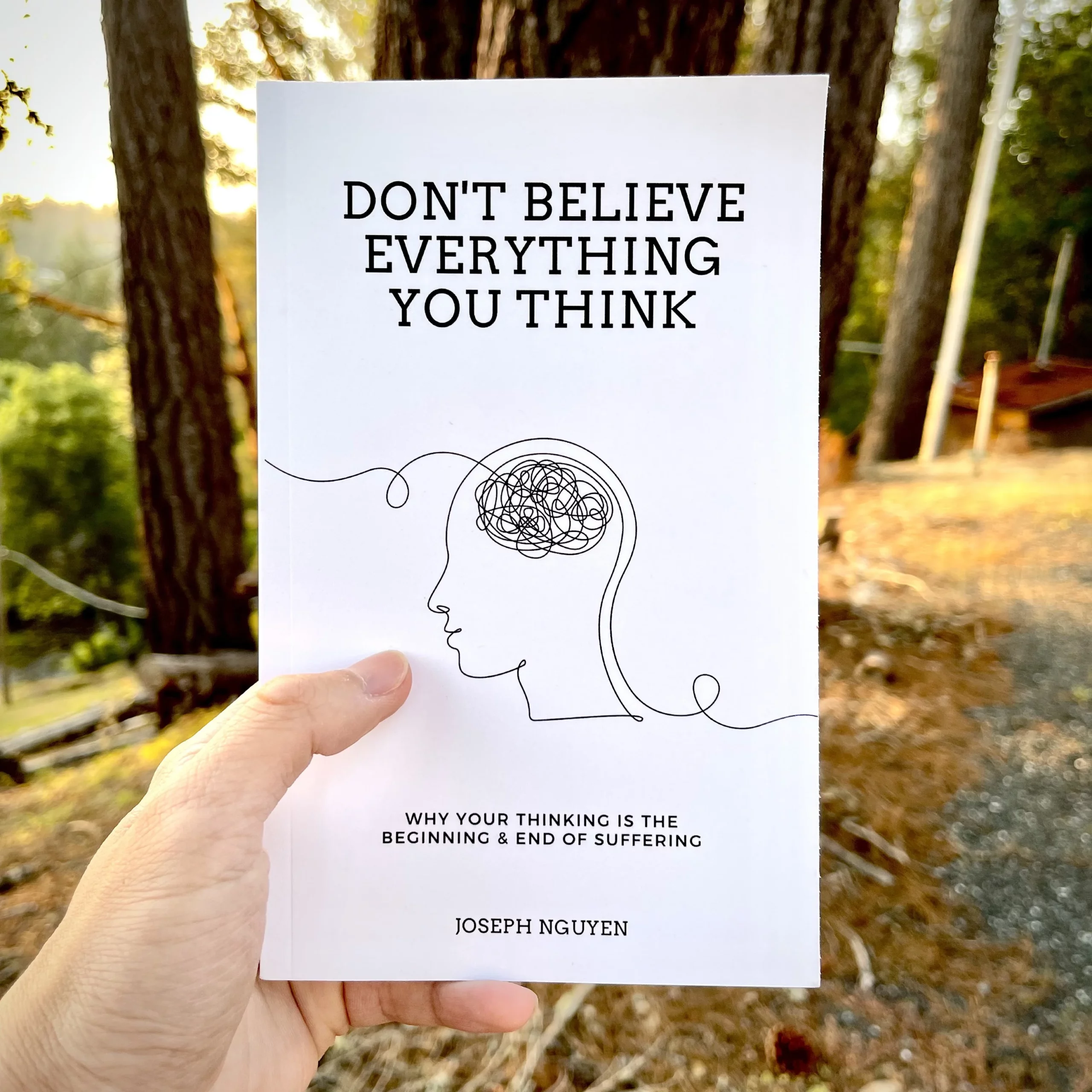No matter if it’s about career, life, or personal growth, the future is always filled with unknowns and changes. Many people feel anxious and helpless because of this. However, in the book “Don’t Believe Everything You Think,” author Joseph Nguyen explores the nature of thinking deeply. He shows us how to view the uncertainties of the future from different perspectives. He also provides practical methods to help us let go of our fears about the future.

1.Realize that thoughts are not the same as reality.
The book emphasizes that our thoughts often do not match reality, especially when we think about the future. Our brains generate assumptions and speculations that lead to fear. However, these are just imaginations and do not represent what will actually happen. Nguyen points out that once we realize the gap between our thoughts and reality, we can distance ourselves from these thoughts and not be controlled by them. This understanding can reduce our fear of the future, because the scenarios we fear are imagined, not inevitable.
For example, the book mentions that we often experience endless anxiety due to a negative event or thought. Suppose you are waiting for the results of a job interview. If your thoughts dominate you, you might continuously guess, “Did I perform poorly?” or “Why haven’t they contacted me yet?” This can lead to anxiety and fear. However, these are just your imaginations and do not represent the facts. In reality, the company’s hiring process might just be slower than you expected, and your interview performance might not be as bad as you think.
2.Learn to Accept Uncertainty
Our fear of the future stems from our desire for control, while uncertainty is a natural part of life. We cannot control every detail, and many things exceed our expectations. The key to overcoming this fear is to accept uncertainty, maintain an open mind, and allow its presence. Trying to control everything is not only impossible, but it also increases our psychological burden. By recognizing that uncertainty is not an adversarial force, we can coexist peacefully with it.

3.The Power of Focusing on the Present
Nguyen mentions in the book that fear of the future often arises from our excessive focus on what is to come, neglecting the present moment. The future is composed of many “nows,” and the only true existence is the present moment. If we can fully engage in what we are doing right now, our minds will no longer wander into anxiety and worry about the future.
He suggests using mindfulness practices to help us focus on the present. A powerful way to concentrate on the now is by paying attention to our breathing and bodily sensations. Breathing is an effective tool. It shifts our focus from thoughts to our current physical state. As we focus on each breath and how our body feels, our awareness returns to the present. This reduces the negative emotions associated with our thoughts.
4.Question and Redefine the Standards of Success
Many times, our fear of the future stems from the fear of failure, because we link success with crucial life goals like security and happiness. However, Nguyen points out that success is not determined by external achievements but by our internal state. Many people mistakenly believe that achieving a certain goal will bring them a sense of security, but this is often not the case in reality.
The book encourages us to redefine success, not to equate it with external material achievements. When we no longer excessively pursue certain external outcomes, our inner anxiety decreases. We can focus more on internal growth and experiences, rather than external evaluations in the future. This makes us more open and accepting of what the future holds.

5.Take action, even if it’s just a small step
Finally, Nguyen advises us to take action. Facing the uncertainties of the future, our thoughts often paralyze us, making us feel unable to start. However, taking actual steps can help us break this deadlock. Even the smallest step can help reduce our fear of the future.
The uncertainty of the future is inevitable, but by changing our way of thinking, learning to accept uncertainty, and focusing on the present, we can reduce our fear of the future. As taught in “Don’t Believe Everything You Think,” fear does not come from the future itself but from our thoughts and imaginations about the future. By adjusting these thoughts, we can embrace changes in the future, finding inner peace and strength.
📖 Learn more about this book:
How to Overcome Past Psychological Trauma
✒️ The content above was created by iWeaver Ai.




